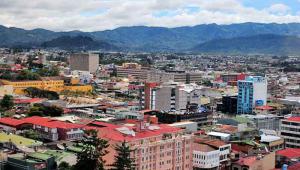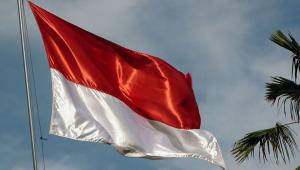International donors promised $3.4bn at the International Conference on Ebola Recovery, organised by the United Nations, in New York last July. This brought the total pledged to help Guinea, Liberia and Sierra Leone rebound from the two-year epidemic, which killed more than 11,000 people and decimated economic and development gains, to $5.8bn.
But six months after the funds were pledged, Oxfam has highlighted that at least $1.9bn has not been delivered and that information about the remaining $3.9bn is scant.
Aboubacry Tall, Oxfam’s regional director for West Africa, said: “A lack of transparency throughout the whole process, from donors to implementing organisations to programmes on the ground means we’re finding it hard to understand which donors have given what money, to whom and for what purpose.
“We know that $1.9bn of the promised funds have not even been committed to a specific country but we can’t say for sure how much of the remaining committed money has been effectively delivered.”
According to a report by the United Nations special envoy on Ebola released last month, as of 31 October 2015, 77 donors had pledged a total of $8.9bn for Ebola response, recovery and research, of which $5.9bn had been disbursed – a total disbursement level of 66%.
While separate pledges for response and research and development were 93% and 77% fulfilled respectively, only 29% of the funds promised for recovery had been released.
The UN report found that only $1.04bn had been disbursed towards recovery so far, but noted that even the UN was having difficulty tracking funds.
The report covered only $3.6bn of the funds pledged for recovery, not including a total of $1.26bn worth of commitments from the International Monetary Fund, the African Development Bank and a number of countries such as China, Russia, the US and France. This was because “precise information about these commitments was not available” when the report was being prepared.
It added that there are also “consistent challenges” in differentiating between new pledges and existing commitments, meaning that even the figures for those donors who did provide information for the report were $380m lower than the total pledges those donors promised at the conference in July.
However, the report also noted that the lower disbursement level for recovery “is indicative of the ongoing shift from response to recovery activities” and the fact that the information in the report was gathered relatively soon after the conference in New York.
In addition, a “sizeable portion of the funds pledged for recovery is allocated for programmes scheduled to be implemented in 2015 and 2017”, it said.
Earlier this month, the World Health Organisation declared the end of Ebola in all three of the worst-hit countries for the first time since the epidemic began, however just hours later a dead body tested positive for Ebola in Sierra Leone.
According to latest WHO estimates, a further 150 people were exposed to the risk of Ebola in Sierra Leone last week. Oxfam said the slow identification and response by health services in both Sierra Leone and Liberia demonstrates they are still not capable of responding effectively to Ebola or other contagious diseases.
Tall said: “In order for the countries to quickly build the health systems they require, governments and communities need to know what they are getting, when it is coming, where it is going and they need to have a say in how it is used.
“We urge donors to ‘put their money where their mouths are’ and demonstrate what transparency really means by, at a minimum, publishing information in accordance with International Aid Transparency Initiative Standards.”
Oxfam also urged the governments of the three worst-hit countries to invest in healthcare and empower communities to get involved. It called on all African governments to fulfil a commitment made 15 years ago to devote 15% of national budgets to the health sector.













